Collective power: Nine Philadelphia-area Latinx leaders answer our questions
 September 28, 2021
Category: Featured, Long, People
September 28, 2021
Category: Featured, Long, People
Suddenly this month every biz and org is just like Ed Sheeran having a south of the border moment with Cardi B and Camila Cabello.
You can’t totally hate that song — or Hispanic Heritage Month for that matter — because there’s something catchy and celebratory about it, and it manages to shine light on deserving Latinx talents. But on the other hand, you can’t quite forgive its stereotypic and tokenizing ways either….
We’re about midway through the annual lip-service-and-marketing-fest that is supposed to mark the many Latinx contributions to the fabric of life in the US, and I’m already deeply irritated.
For this Latina news editor (one of very few in Philly), it’s what happens during non-Hispanic Heritage months that really deserves attention: the utterly inadequate investment in Latinx neighborhoods and communities; the serious lack of Latinx political representation throughout the region; and the fact that our experiences seem always to be either flattened into a monolith, or wholly erased from view.
Latinxs comprise 15% of Philadelphia’s population; 27% of the population in Norristown (Montgomery County) and 62% of the population in Avondale (Chester County). As I like to say, aquí estamos, y no nos vamos — we’re here and we’re not going anywhere.
Thankfully, there are a number of Latinx nonprofit and civic leaders in the Philadelphia area who throw elbows every day to make space for more Latinxs at the table. They fight injustices, offer solutions, build community, amplify voices and cultivate incredible creativity year-round.
We asked nine of those Latinx leaders for their responses to four questions we think everyone should hear, this month in particular:
- From your vantage point, what is the most significant challenge the Latinxs you know, love and work with are confronting in our region right now?
- What do you wish people better understood?
- What needs to happen next?
- How is your work/activism/advocacy part of the solution to that challenge?
‘Our biggest obstacle is access’
 Rafael Collazo
Rafael Collazo
Executive director
UnidosUS Action Fund
Our biggest obstacle is access: access to accurate information about community issues, politics and educational and economic opportunities. There needs to be a much greater investment by the public and private sectors to disseminate culturally competent messaging that Latinos can use to better their own lives.
Most of us have little appreciation for the power we have to impact the lives of others. Our unique stories and talents change the world everyday; we need to help our community see that within themselves.
We need to continue to leverage our collective power. I think about how the Puerto Rican/Latino community came together after Hurricane Maria in 2017 and generated a historic relief effort. When we work together, we can do anything. From an electoral perspective, an estimated 15 million Latinos voted in the 2020 election and a million Latinos are going to turn 18 years of age each year for the foreseeable future. The potential to become the electoral force in national politics is real and we must own that power to forge our own future.
Obviously, civic engagement is key. The work to naturalize new citizens, register people to vote, provide substantive voter education and mobilize people to the polls is constant. Most importantly, UnidosUS Action Fund and other advocacy organizations must focus on organizing work grounded in people power and giving Latinos the tools to raise their own voices.
‘Nothing about us without us’
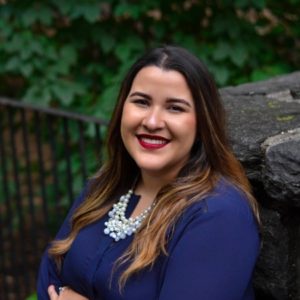 Signe Espinoza
Signe Espinoza
Interim executive director
Planned Parenthood Pennsylvania Advocates
I think the biggest challenge recently has been around abortion access and discourse. In this moment, white folks, particularly white cis-women, have a sense of urgency, only now once their own access to abortion is threatened. Legality has never meant accessibility for poorer populations, primarily communities of color, thanks to federal and state laws such as Hyde and the Abortion Control Act. It is long overdue that our voices and leadership be centered, and yet white folks continue to step in and attempt to co-opt this moment.
I wish people better understood that truly celebrating Latinx folks is not confined by a series of posts over the period of a month, but rather to support Latinx voices, leaders, and organizations every day. People need to understand that working in the nonprofit industrial complex as people of color can be a substantial burden. If people aren’t willing to make space and room to uplift our leadership, they shouldn’t be in this work.
I think people need to commit to ongoing work. White cis folks inhernetly carry biases and privilege and they need to commit to much more than a post or a series of trainings. Next — folks in positions of power need to commit to ensuring that our leadership is not only present, but sustained and sustainable.
Our work is part of the solution to these challenges because our team is made up of folks who represent different identities and lived experiences. We are committed to ensuring that our work centers our resiliency, and the resiliency of our communities. In the Planned Parenthood world we always say, “nothing about us without us,” and to properly address the problems we are faced with, we need to boldly adhere to this phrase.
‘Let’s first start by not erasing us from American history’
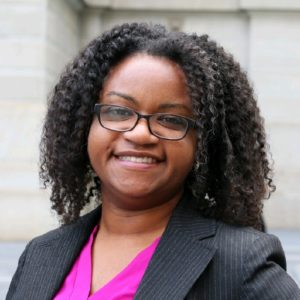 Amy Eusebio
Amy Eusebio
Executive director
Office of Immigrant Affairs
City of Philadelphia
While reflecting on these questions about Hispanic Heritage Month I came to realize that I had no emotional attachment to this celebration of my people and our contributions to the United States of America, and that I had no significant memories of celebrating this in my entire K-12 education.
Now don’t get me wrong, I had a high quality education while growing up in Northern NJ that celebrated multiculturalism in my highly diverse middle and high schools, but I don’t recall any significant learning about Latinos. I recall two instances in my K-12 education where the content I was learning reflected something from my reality: a history class where I learned President Roosevelt was supportive of Rafael Leonidas Trujillo who would go on to become a 30-year dictator on my parents’ island; and again in high school in a World Literature class learning the beauty of magical realism.
For my immigrant parents and their siblings, they definitely had never heard of a thing called “Hispanic Heritage Month” and it still means very little, if anything, to all of them. And every time people did mention Latinos in mainstream media, the images were always people with fair skin or caramel complexion with wavy to curly hair, and that is not my version of Latinidad. After all, in my youth I conceived myself and my family as “Black people who happened to speak Spanish.”
If we really want to celebrate the contributions of the diverse people of Latina America in the United States, let’s first start by not erasing us from American history and teaching accurate history to all of this nation’s children. Our people have and continue to contribute greatly to this country and this has been the case since the border crossed the Mexicans on the West Coast. We should take every opportunity to counter the narratives that Latino immigrants and their children are lazy and here to suck up American resources or jobs.
When one in four children in the US is Latino, we definitely need to update our history books and classes. Latino and immigrant families similar to mine, collectively give so much more than we will ever be able to collect. And guess what, most of my people — campesinos, jibaros, country folks — are OK with that. The only thing we expect is an opportunity to be treated equally under the law and to stop propagating false narratives about our worth and value.
We are hard working people whether our stories are written or not. We are also here even when your images of Latinidad do not match our racial reality and wide diversity.
For those private companies and government leaders that really want to celebrate the contributions of Hispanic or Latino Americans, I ask you, how do you ensure that policies and programs are applicable to all residents regardless of immigration status, English language abilities, race and class? We all need to stop performing inclusion and making meaningful material changes to demonstrate inclusion. Any company promoting their commitment to Hispanic Heritage Month I would ask the following:
- What are your hiring practices?
- Do you offer thriving wages to your employees?
- With whom do you contract?
- Who do you fund?
- With whom do you partner?
Essentially, are you actually in relationship with my community, listening to our concerns and addressing our requests before they become demands? We are America. We built this country and continue to build this country so that we can continue to be the land of opportunity, not just for us, but for all people coming to seek a chance to thrive.
In my work, I see part of my responsibility is to hold the American government accountable to what it has promoted that it stands for over so many decades. Latino Americanos such as myself are eager to help make this country a more perfect union for all.
‘Latino population growth and development is integral to the region’s growth’
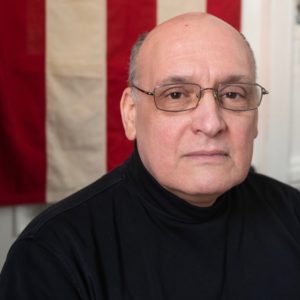 Will Gonzalez
Will Gonzalez
Executive director
Ceiba
The most significant challenge Latinos in Philadelphia are confronting is poverty. Latinos are the poorest community in a deep poverty city and COVID-19 made things worse. Latinos have the highest poverty rate in Philadelphia: 37%. Philadelphia’s Latino poverty rate is the highest among the nation’s most populous cities and its poorest large cities. Poverty emanates issues of trauma, violence, health, injustice, inequity, etc.
Latino population growth and development is integral to the region’s growth. But for the Latino community, Pennsylvania would have lost more than one seat in the US Congress. Pennsylvania’s population only grew 2.4% between 2010 and 2020 or by about 300,000 people. In the same period, the states ‘s Hispanic population grew 45.8%, or by about 330,000 people. Growth in the Hispanic population offset the declines in population of other groups. The Latino share of total population change in Pennsylvania was 110%. In Philadelphia, the total population of the city grew 5%, between 2010 and 2020. During the same period, the Hispanic population of Philadelphia grew by 27%.
Our region must address issues that affect Latinos to fully thrive and prosper. Addressing social justice issues is complex and contentious. We can’t let those who want to preserve the status quo divide communities who seek equity. We need the full humanity of people of color involved in this fight.
Access to affordable housing is central to Ceiba’s work. We are not supposed to spend more than 35% of our income on housing, but low and moderate income families spend most of their income on housing. The intersection between health and housing is finally being acknowledged. Finally, the City still has challenges in recognizing the Latino Homeless Paradox: Latinos have difficulty accessing homeless services relative to the community’s representation among the city’s poor.
‘Latino communities are not homogenous’
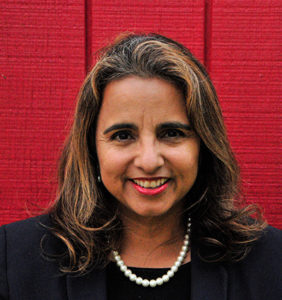 Nelly Jimenez-Arevalo
Nelly Jimenez-Arevalo
Executive director & CEO
ACLAMO
Multiple socioeconomic factors disproportionately impact our community and as a result lead to several challenges. The top four include food insecurity, access to stable housing, lack of funding on education, and health care. Many of our community members do not have access to vehicles and live in food desert areas; many of our Latino families are rent-burdened and face eviction, live in overcrowded homes, but yet do not qualify under traditional “homeless” definitions. The lack of healthcare access has been made worse due to COVID-19 and lack of health coverage and sick times tied to jobs have impacted our community’s ability to withstand the impact of the pandemic.
I would like to highlight the positive economic impact of our communities and our earning and tax contributions to our country. Many of our community members have an entrepreneurial spirit, creating jobs and vibrant communities all around. Latino communities are not homogenous. We are diverse in cultures, races and origins, and hold our own unique perspectives and gifts to bring to the table. What works in one community, may not work for another. This is why we need to identify community leaders that are able to bring messages of hope and optimism to their own communities in a language they understand, care and trust.
Barriers we have seen in advancing racial equity relate to building cultural competencies amongst other network providers to build inclusive models to serve the Latino community in areas related to language access, citizenship status, beliefs, values, culture and the understanding that communities are different even within our Latino communities.
Another barrier to advancing racial equity work is tokenization; having one person of color does not mean that an organization now understand and has built trust or access to a whole community. We have seen agencies say that they serve our community, but do not have policies, organizational structure or staff that reflects that. The board, the leadership team, staff, and the policies in the organization have to support that work as well. Investment and allocation of funding should be part of that plan.
[What happens next?] Consciously implementing strategies that deconstruct organizational bias, analyzing organizational policies, ensuring those policies are enforced, celebrating successes, invest resources, making sure policies are accessible. Community-building and learning.
ACLAMO promotes racial and economic justice on a local, state, and federal level. Our programs in all three departments are designed to decrease disparities amongst the Latino population, and we are committed to advocating for underserved communities. We have a grassroots promotores program that leverages the power of community leaders to bring back important information to other community members. We also hold meetings and trainings on grassroots leadership to teach and discuss important topics. ACLAMO also has a community organizer who leads advocacy initiatives.
We take a holistic approach in implementing solutions that break down long-standing, systemic inequalities that the Latino community faces, and has since been exacerbated in light of COVID-19, and now recently, the remnants of Hurricane Ida. We are committed to hiring a diverse group of team members and have close ties to not only the Latino community, but also with the Korean and African American community.
ACLAMO’s Community Organizer leads advocacy initiatives in education and immigration, and our ED serves on Governor Wolf’s Advisory Commission on Latino Affairs. Our staff and board are diverse and our values were developed early this year by direct line staff through an equity lens. We are a part of the Racial Equity Learning Community, a three-year initiative for organizations in Bucks and Montgomery Counties build relationships and take action that deepens organizational and collective capacity to advance racial equity and justice. ACLAMO is working with a project coach from Pearl S. Buck International, and as a group we will participate in trainings.
‘Our storytellers, truthsayers, and changemakers need to be heard’
 Michelle Angela Ortiz
Michelle Angela Ortiz
Visual artist
In this city our stories and images are whitewashed and our contributions are undervalued. The most significant challenge is lack of visibility and recognition for the skills and spirit we bring to our communities that continue to be underresourced.
I wish people would understand that we are much more than a month, a name, and celebrations centered on stereotypes of our people. We are molded from our experiences, struggles, triumphs, and faith.
Our complex and multiple identities need to be seen and celebrated. Our storytellers, truthsayers, and changemakers need to be heard and honored while they are still living. Our stories need to be remembered as part of the common thread that weaves into the fabric of this city.
We need to continue to challenge and dismantle the systems that do not serve us. As an artist, I am in the realm of creating possibilities through the creative lens. From large scale projections to murals, I continue to gather and create monumental tributes with our people and honor our light, even when others fail to see it.
‘Barriers and challenges faced by Latinos in Philadelphia can’t be explained away by convenient narratives’
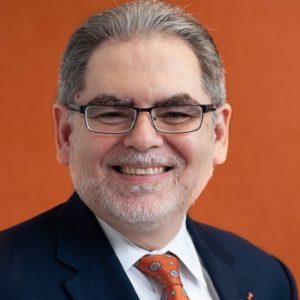 Pedro Ramos
Pedro Ramos
President & CEO
Philadelphia Foundation
Greater Philadelphia must better understand, better support, and better serve its Latino residents. As census data continue to show, Latinos are driving the population growth of the city, region and state, so the wellbeing of Latinos and our region is intertwined.
Too surprising to too many, Latinos in our region are doing worse than all groups in a variety of important ways, and worse than Latinos in other cities. To the extent Latino inequities are discussed at all, much of the knee-jerk rationales and excuses don’t begin to explain away the long-standing and systemic exclusion of Latinos in Philadelphia.
Philadelphia Latinos have fared worst among all demographic groups in a number of critical measures: poverty rate; child poverty rate; dropout rate; proficiency in 4th grade reading and 8th grade math; enrollment in high achieving schools; civil service and non-civil service city jobs; trade union membership; use of banks; voter participation; COVID morbidity and hospitalization (age 35+); and many other measures of wellbeing.
The COVID pandemic, opioid pandemic, and public safety failures of government have disproportionately impacted Black and Latinx communities, making the negative force faced by Latinx people even greater.
It is important to note that barriers and challenges faced by Latinos in Philadelphia can’t be explained away by convenient narratives of language, immigration status, or recentness of arrival. Historically, over 60% of Latinos in Philadelphia (and 67% of poor Latinos) are Puerto Rican. Puerto Ricans are citizens, have been in Philadelphia for several generations, and over 80% say they speak English well. Latinx poverty and poverty relative to the general population were cited as the worst of U.S. cities by Pew in a 2017 report. Not enough leaders have enough knowledge about our community.
Greater understanding and more active support of the Latinx community from leaders of government, business, and nonprofit institutions, is required to ensure that the pace of progress for Philadelphia’s underserved Latino population is accelerated and the future wellbeing of the region is secured.
‘We must work together and demand that we educate and engage our youth’
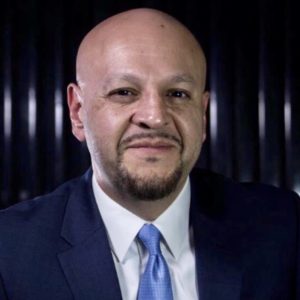 Javier Suarez
Javier Suarez
Executive director
Live Work Philadelphia
[The most significant challenge is] a lack of confidence that those who are tasked and perhaps best equipped — like local institutions and government —to bring about support, guidance and solutions for significant problems and persistent issues seem to be uneducated about diversity, as well as their missed opportunities to create an environment of inclusion and better connections across all communities.
[I wish people better understood] that diverse communities are not simply “others,” we are citizens and members of our city. We are not to be treated as if basic recognition means anything. We can contribute to our communities and the city and do.
We need to really make the next generation of Latinos (youth) our number one priority. Change and understanding takes time, it’s gradual. We must not simply get by as our community in Philly is experiencing 40% poverty rate. We must work together and demand that we educate and engage our youth to be thoughtful leaders who can see the future as bright as any other community. Their perspective on the future is my most important priority.
While I continue to proudly serve as VP of Strategic Partnerships for the Greater Philadelphia Hispanic Chamber of Commerce, I am now also the executive director of Live Work Philadelphia, an initiative designed to improve the state of our workforce and our communities via the attraction of diverse middle-income talent and new residents to the city.
‘I wish people better understood the richness in cultures, and in turn our identities’
 Tiffany Tavarez
Tiffany Tavarez
Senior vice president
Community Sponsorships and Strategy
Wells Fargo Advisors
Entities across the country are riding the wave of wokeness. The pandemic has caused a positive surge in individual and organizational philanthropy. Black and brown professionals are being sought after for leadership roles. Diversity, Equity and Inclusion consultants are overwhelmed with requests for trainings and workshops. People are relying on their “diverse’ colleagues to answer questions, define terms and provide book recommendations. With all of that being said, the two significant challenges that span location, income-level and culture, are: 1) how to leverage the influx of visibility and attentive tokenism while safely managing one’s mental health and emotional well-being and 2) how to sustain the investment, advocacy and interest in our community once the DEI dust has settled. There shouldn’t be a return to “normal” once we’ve learned how not normal things have truly been.
I wish people better understood the richness in cultures, and in turn our identities. We are not a monolith. There are beautifully unique differences in between countries that span the Latin Diaspora. Additionally, we can identify in a myriad of ways that go beyond our current labels of immigrant, Spanish-speaking, blue-collar, first-generation college graduate or low-income. Are there individuals that have identities that include those labels? Absolutely, but that doesn’t define their whole selves in every space they’re in. They can also be Black, Queer, solely English-speaking, or a fifth generation American. Once we can start to grasp the possibility of intersecting affinities, then we can finally address the overarching theme of how we describe those identities beyond “passionate,” “spicy” or “exotic.”
We may not have direct control or influence over what dollars are spent at organizational level when it comes to our employer. However, we do have control over how our personal dollars are spent. Remember that Latinx creatives, small businesses, consultants, etc. are available for hire outside of Hispanic Heritage Month. Books by Latinx authors are available for reading outside of Hispanic Heritage Month. Art by Latinx artists can adorn your homes, offices and galleries outside of Hispanic Heritage Month. Nonprofits — of all sizes — led by Latinx leaders need support all year-round.
The September 15 to October 15 timeframe should not determine what our commitment to this community is. It should serve as an opportunity to highlight what we consistently and thoughtfully do all year round.
I think about what words matter to me. I am mindful of how I speak to people. It is those words, those moments, that define you as a leader. All of the affinities I represent — occupationally, culturally, spiritually — are the vehicles in which I let others know what those words mean to me and what I think of them. I’ve been told everything from “Latinas make the best secretaries” to “is your hair real?” to “I never forget an exotic face” and most recently “what are you?” Our responses to these questions, or lack thereof, will either cultivate the continued individual behavior we organizationally don’t recognize, or it will rightfully break the behavior we individually are scared to do but yet organizationally demand. We’ll need to remind ourselves that serving as an activist and advocate for the Latinx and Black community is needed in places where white supremacy is centered, regardless of the demographic in the room.
No matter what organization you are associated with, it is your personal commitment to this community that will build your legacy and determine your organization’s bottom line.
Project
Office of Immigrant and Multicultural AffairsTrending News











